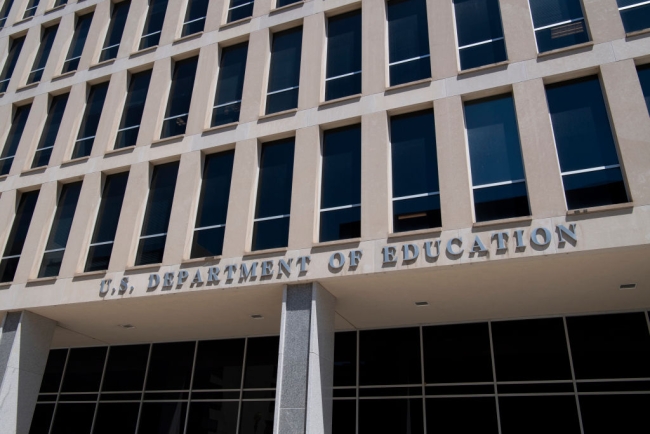You have /5 articles left.
Sign up for a free account or log in.

The Department of Education has postponed the semiannual meeting of a key advisory panel.
Caroline Brehman/CQ-Roll Call Inc./Getty Images
The Department of Education pushed back a semiannual meeting of its accreditation advisory committee from July to October, raising red flags among higher education policy professionals, The Wall Street Journal reported.
The delay means that by the time the panel meets, the terms of six of its 18 members will have expired. The education secretary, House and Senate each appoint six members. In May, Education Secretary Linda McMahon requested nominations to fill six seats in October. Experts and members of the committee are worried that the Trump administration is trying to stack the panel in its favor as decisions about the future of higher education accreditation loom.
“In balancing the administration’s priorities and resources, we decided to schedule the meeting for October,” Savannah Newhouse, a spokesperson for the Education Department, told the Journal.
The panel, known as the National Advisory Committee on Institutional Quality and Integrity, advises the department on which independent agencies should have the power to accredit colleges and therefore which colleges should have access to federal aid. At the next meeting, NACIQI is scheduled to decide whether to renew recognition for the Middle States Commission on Higher Education, the accreditor for Columbia University.
The Trump administration has cracked down on Columbia, claiming it has mishandled antisemitism on campus. More recently the president and his staff pressured MSCHE to take action against Columbia. It is uncertain exactly whom the new panelists will be or how their selection will impact the decision of whether to renew MSCHE’s recognition as an accrediting agency.
Panel member and chair Zakiya Smith Ellis told the Journal that she is concerned that the Trump administration is “trying to take over this advisory group that is supposed to be in place for our expertise in higher education, not to push a certain political agenda.”




